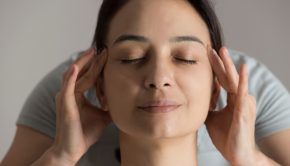Wellness Coaching, A New Approach to Change
Most people think of wellness as just diet and exercise, but it’s a lot more. Wellness comprises all the factors that contribute to well-being, which fall within 10 dimensions of wellness: behavioral/intellectual, environmental, financial, medical/dental, nutritional, occupational, physical, psychological/emotional, social and spiritual.
A holistic perspective is not unique to people pursuing natural or alternative lifestyles. In 1948, the World Health Organization (WHO) issued a holistic definition of health: “A state of complete physical, mental and social well-being, and not merely the absence of disease or infirmity.”
The WHO definition of wellness is similarly holistic and includes communities, not just individuals: “The optimal state of health of individuals and groups…the realization of the fullest potential of an individual physically, psychologically, socially, spiritually and economically, and the fulfillment of one’s role expectations in the family, community, place of worship, workplace and other settings.”
Well-being isn’t a function of just one or another dimension. It also is affected by their interrelationships. It’s easy to see why: If we have a terrible boss, it can affect our productivity (occupational); we may seek refuge in hard-to-avoid junk food (nutritional); our sleep may suffer (behavioral) and weaken our immune system (medical/dental) such that our stress level skyrockets (psychological/emotional), making us snap at family and friends (social) and feel cut off from our best self and unique purpose in life (spiritual).
Advice, solutions, and tips for any one of these problems are not likely to help on their own, because changing our life for the better isn’t a matter of throwing solutions at problems or discovering the true remedy. This is a mechanistic approach, like you’d use to fix a car. People are a lot more complicated and they’re a lot smarter about the unique things that make them tick. The big question is how do people make changes in their lives that stick and allow them to arrive and remain in the good place they want to be. Helping people get these is where wellness coaching comes into play.
Wellness coaches are experts in the art and science of change. They don’t teach, direct, mentor, counsel, advise or analyze. Wellness coaching honors the human spirit and the complexity of human thought and behavior. They “walk alongside” the people they are coaching, rather than following behind, like a cheerleading best friend or taking the lead by telling people what to do. Wellness coaches believe that each person is the expert about themselves, so wellness coaches focus on helping people marshal their own unique strengths, skills, and resources to set goals that are important and meaningful to them; use science-based tools and techniques to achieve those goals; and make the changes stick.
Just as anyone can kick a ball, it takes special insights into the strategies and mechanics of the game and a lot of hard work and practice to make it onto a championship team. Two key tools that wellness coaches use are empathic, caring communication that is open, curious, and non-judgmental to build trusting, supportive relationships; and powerful questions that shine the light on a person’s skills, strengths and resources, and help them discover their own ways to build a life of meaning and purpose.
Wellness coaching skills can be incorporated into everyday living to improve our own well-being and to help family and friends, or people on the job, at school and in the community. As an occupation, wellness coaching can be offered in many different settings, such as independent practice, healthcare clinics, health and fitness centers, spas, recreation and senior centers, schools and faith-based organizations. Wellness coaches can work full-time or part-time in the occupation or incorporate the skills into an existing job.
The Institute of Wellness Education (IWE) projects that wellness coaching will grow at a much faster rate than in the past for the next seven years. The time couldn’t be better for exploring a new career path that’s flexible, creative, rewarding and offers unlimited income potential. The IWE worked with the U.S. Dept of Labor to have wellness coaching approved as an official U.S. occupation and trains wellness coaches online.
Deborah Teplow founded the IWE in 2012 to empower people, regardless of age, occupation, or education, with science-based skills that foster sustainable behavior change. For more information, visit InstituteForWellness.com.





























